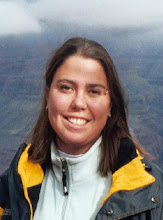I’ve been so engrossed in podcasts these past several weeks that I haven’t been reading as much - otherwise it’s just too much information, too many words, during the day. Also, I think I approached my entrée into podcasting the same as I did my entrée into TV land back in June. I’m insatiable – I feel like I have to listen to everything, just because it’s there and to figure out what I like. And I only download NPR and Slate.
Currently, I’m making my way through NPR’s: Technology; Economy; Environment; On Health; Religion; News from Lake Wobegon; On Science; Pop Culture; and Sunday Puzzle. Plus, I haven’t even started on the backlog of Car Talk; Fresh Air; Intelligence Squared; Wait Wait…Don’t Tell Me!; and This American Life. Whew!
If you have suggestions for podcasts that you think I should listen to, or would enjoy, please let me know!
Of all that I’ve listened to the past few weeks (podcasts dating back from June to present), some were informative, but I’d say the ones that have stuck with me, or that I’ve enjoyed are: Lake Wobegon; Sunday Puzzle; and On Health. And I want to share these two things from On Health.
1) NPR’s Health Care for All series. Tagline, “In Europe, it’s a reality.”
They did studies of the UK, France, Germany, Switzerland, the Netherlands, and Japan. In each case, highlighting the +/- of that country’s system, interviewing people, and comparing it to the U.S.
“Countries with governments and economies similar to the United States have come up with a variety of methods to make sure that all of their citizens receive health care. While residents in Europe and Japan may pay higher insurance premiums or taxes than Americans, in the end, when all costs are added up, Americans spend more money on health care per person — with fewer people covered.”
Click the “Interactive Graphic” for a comparison of the different countries’ policies versus the U.S.
I’d be better off staying in France if I ever decide to get sick during my lifetime. I worry that when I’m older (1) Social Security will be gone so I cannot rely on that for income; (2) cost of living will be much higher; (3) I will have to rely on my current investments for retirement income, and the state of the US economy is doing nothing to calm me; all thus leading me to point (4) it’d be very easy to go bankrupt in the US when faced with health problems.
Just because you have insurance doesn’t mean you’re covered. It could be coverage only up to $100k (and that doesn’t cover a lot for a major illness); or doesn’t cover some types of surgery, rehabilitation, medicine, etc. And, who’s to say there will be enough doctors in the future?
2) WHO Patient Safety Checklist
Hard to imagine that there wasn’t such a checklist before (see it here) – I mean, having to put on paper, and check off, that everyone in the operating room has introduced him/herself to the rest of the team; or stating what procedure is going to be done; etc. seems redundant. But, you hear horror stories of people having the wrong operation, having medical instruments sewn up in them, etc.
If I ever have to have surgery, I’m taking this checklist with me! Maybe I’ll even create my own checklist for regular doctor’s visits – i.e. review what was written in my chart; ask what alternatives to the suggested treatment are available; etc.
Hope these are helpful and informative to you.
Subscribe to:
Post Comments (Atom)

2 comments:
I'm way behind on podcasts. Without commuting and being bad about going to the gym, I just don't listen to them often. I liked NPR Story of the Day (they were short) and On The Media. I liked Astronomy Cast but it might not be your thing. Also if you can do video, I highly recommend the TEDTalks series. They're freaking amazing.
So glad you've found the world of podcasts, Megs! I currently have a 60-90 minute commute, so I've been listening to my favorite: PRI's The World (so so so freakin good...they start with the major international headlines, then go to more focused, researched stories by reporters in the field all over the world, then they have lighter, int culture/music pieces at the end. Surely if there is one avenue for getting better at trivial pursuit or Jeopardy, this is it.)
Miss you!
Post a Comment